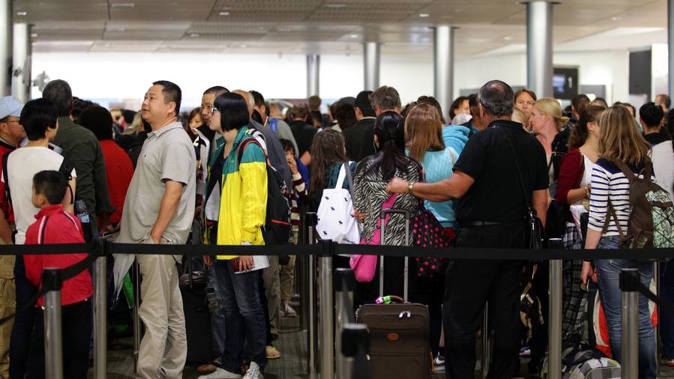
Immigration Minister Erica Stanford has received the findings of the Assurance Review of the Accredited Employer Work Visa (AEWV) Scheme released today by the Public Service Commission.
“The report highlights serious issues, and I am disappointed that appropriate risk assessments were not being carried out by Immigration New Zealand from October 2022 until June 2023,” Ms Stanford says.
“I accept that the Ministry were under a great deal of pressure following the reopening of borders after COVID-19 and the unprecedented demand for migrant workers. This included having significant numbers of new staff, the merging of six previous visa types into one, and a new IT system that was not fully operational.”
Ms Stanford says she had received assurances from MBIE Chief Executive Carolyn Tremain, that there had been significant improvements in risk assessments for AEWV applications and documenting decisions and that the feedback from visa processing and compliance staff has been taken seriously.
“I want to thank staff who did absolutely the right thing in raising their concerns. I have been clear with the Ministry that when significant risks are identified in our immigration system, appropriate action must be taken and that I must be advised. I would also like to thank the reviewer, Jenn Bestwick, and her team for their work.”
Ms Stanford says the review confirmed that changes to improve the system were already happening but that more was needed.
“Along with the recommendations in the report, I have also asked for a range of advice about the AEWV and immigration settings more broadly that I will be considering over the coming weeks.
“New Zealanders need to have confidence that those who seek to live and work here, have the qualifications and skills they say they do and do not pose a risk, and those who come here for a better life are protected from exploitation.”
In accepting the review’s findings today, MBIE Chief Executive Carolyn Tremain says Immigration New Zealand has acknowledged the serious nature of the issues that were raised in the review.
“The scheme was implemented at the same time as the border reopened after COVID-19 and the review acknowledges the extraordinary challenge that MBIE faced with huge demand for visas to work, study and visit.
“Since 30 June last year, Immigration New Zealand has made a number of changes to tighten the settings, introducing more checks and, as a consequence, processing times have increased,” she says.
“But the AEWV scheme has enabled employers to recruit much needed migrant labour to boost the economy in the immediate period after opening our borders.”
Latest figures show there are nearly 33,000 accredited employers and more than 108,000 approved AEWV applications.
Ms Tremain says the vast majority of employers are doing the right thing and treat their migrant workers fairly and well. But unfortunately, the relatively small proportion of bad actors will always seek and exploit weakness in immigration systems and policy.
“As a result of our investigations 145 employers have had their accreditation revoked and 53 have had their accreditation suspended,” she says.
Ms Tremain says staff have raised serious concerns and that they felt senior Immigration leaders did not pay adequate attention to the concerns raised by them about the AEWV risk settings.
“We encourage our people who want to raise an issue because they’re worried about the integrity of the system to report it – if they are not comfortable doing so to their manager, then to any of the leadership team or to the MBIE Integrity line.”
The Deputy Public Service Commissioner, Heather Baggott said the changes to the Accredited Employer Work Visa scheme did not work as intended and INZ could have done more to minimise the risk of abuse of the work visa system.
INZ should have assessed the risk before implementing the changes, and reviewed the impact of the changes, which would have identified any faults or risks due to the reduction of verification checks.
“Immigration New Zealand implemented, very quickly, a new model to accelerate immigration at a time the country desperately needed skilled workers,” said Ms Baggott.
“While it was unscrupulous employers who exploited migrants coming into the country,
Immigration New Zealand could have, and should have, done more to minimise the risk of that happening.
“The chief executive has since made, or is undertaking, the necessary changes to ensure the scheme continues to meet the needs of employers while better protecting migrant workers coming into New Zealand.
“I expect the chief executive will continue to make improvements in line with the recommendations identified in the report. And the chief executive has assured me this will happen.”
Take your Radio, Podcasts and Music with you









